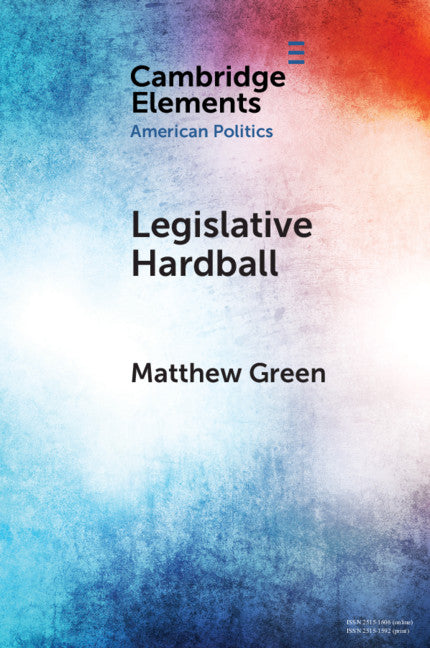Freshly Printed - allow 8 days lead
Couldn't load pickup availability
Legislative Hardball
The House Freedom Caucus and the Power of Threat-Making in Congress
Explores reasons why a specific group of organized conservatives threaten its own leadership, and what could improve its likelihood of success.
Matthew Green (Author)
9781108735810, Cambridge University Press
Paperback / softback, published 14 February 2019
75 pages
23 x 15 x 0.5 cm, 0.56 kg
Assertive bargaining occurs from time to time in the US Congress. It became an important feature of legislative negotiations within the House Republican Party when, following the 2014 elections, a group of organized conservatives called the House Freedom Caucus regularly issued threats against its own party's leadership. Such behavior by an ideologically extreme bloc of lawmakers is not accounted for by existing theories of legislative politics. This Element posits explanations for why such threat-making might occur and what might increase its likelihood of success, then tests those explanations using the Freedom Caucus as a case study.
1. Threat-making and bargaining in Congress
2. A brief introduction to the House Freedom Caucus
3. The influence of the House Freedom Caucus
4. Threat-making and leadership selection
5. Other costs and benefits of legislative threat-making
6. Conclusion.
Subject Areas: Local government law [LNDU], Regional government policies [JPRB], Central government policies [JPQB], Constitution: government & the state [JPHC], Political science & theory [JPA], Politics & government [JP]


